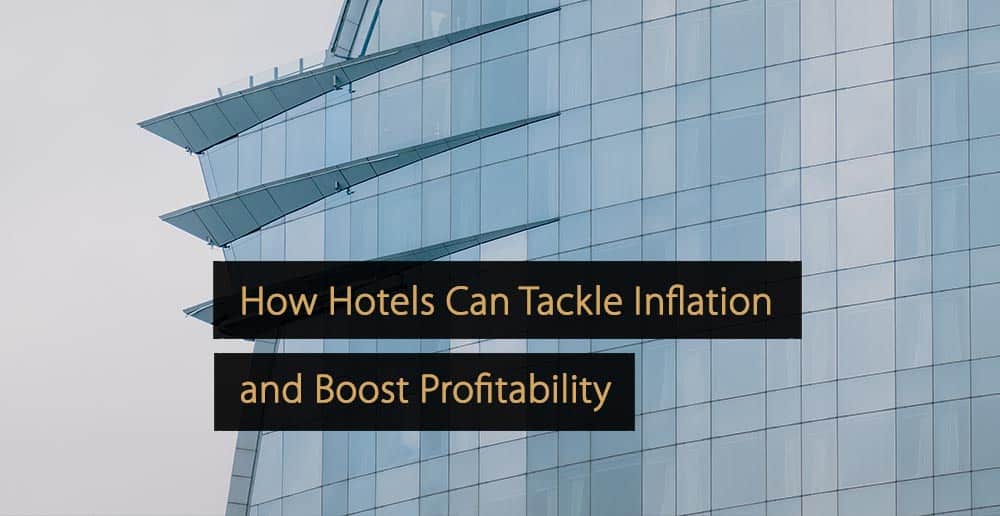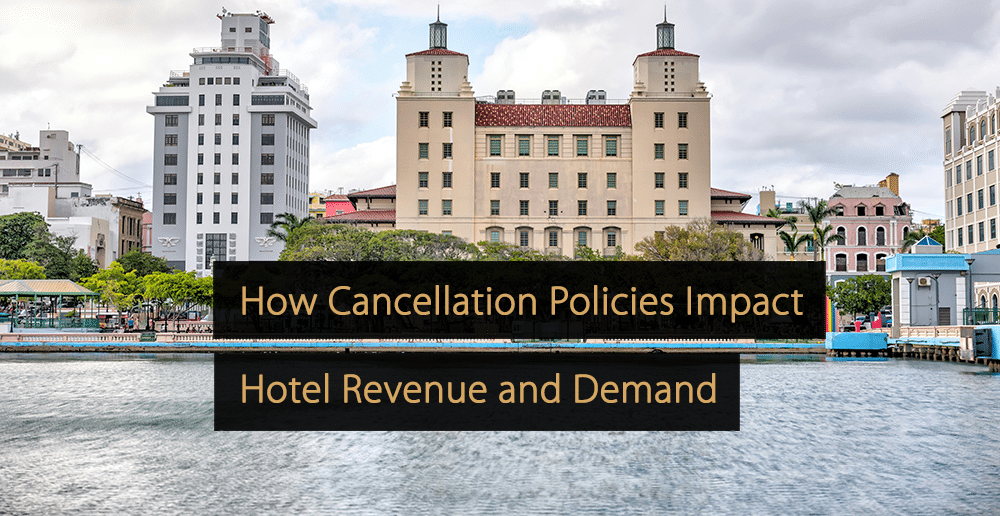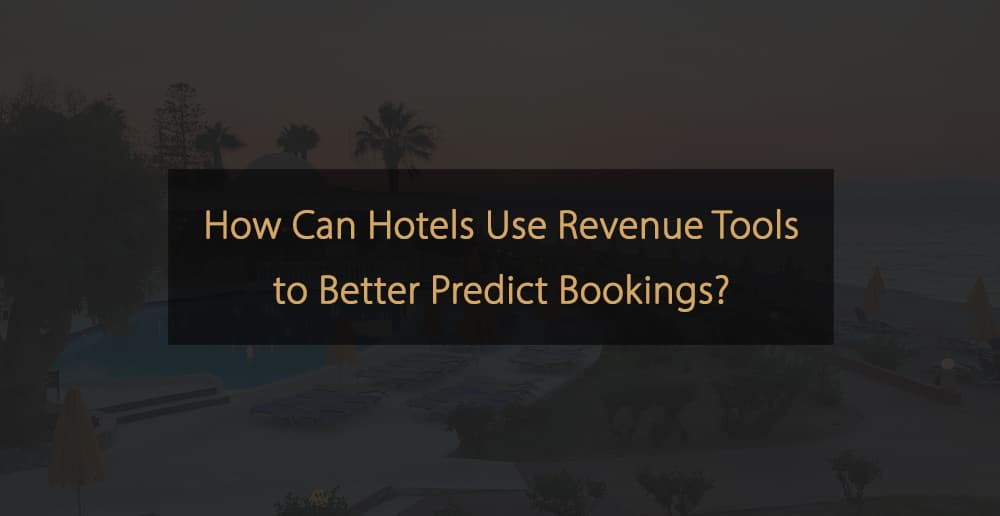After a strong end to 2022 – with European hotel performance reaching 2019 levels – January 2023 saw energy costs peak in many countries. Coupled with a fall in demand, the increased expenses of hotel operations led to a fall in. Although there is evidence of recovery into Spring/Summer, hoteliers must be alert to ensure that 2023 is profitable.
The Impact of Inflation
The hospitality industry relies on demand – first for generating bookings and then to maximize revenue when demand is up. As the cost of living continues to impact occupancy, and inflation drives operating expenses higher – eating into profit margins, what steps can hoteliers take to manage increased costs on their bottom line?
Rising utility and labor expenses are just one aspect of inflation impacting the hospitality industry. Shifts in seasonality caused by changes in consumer behavior, as guests are more cautious with their travel budgets, are affecting room revenue through lower occupancy and rates, and potential spending in F&B, events, spas, and other facilities and services.
Across Europe, each market is impacted differently. The UK has been hit hardest by rising utility prices, while Spain’s labor costs are among the highest in Europe. When all business factors are combined, the gross operating profit per available room (GOPPAR) greatly varies from country to country. Spain is one of the only countries with a positive GOPPAR compared to 2019, and Germany is almost 50% down on 2019 business levels.
| UK | Spain | Germany | |
| Total revenue | +1.5% | +14.5% | -14% |
| Labor costs | +5.5% | +17.5% | 0% |
| Utilities cost | +88.7% | +47.8% | +62.4% |
| GOPPAR | -16.4% | +0.5% | -47.6% |
Source: Hotstats; Q1 2023 compared to Q1 2019
Hoteliers need to take quick and decisive action to manage costs when demand isn’t present – whether in bedrooms, restaurants, or other departments. A focus on profitability, not just revenue, is needed to ensure a business is successful in the challenging climate.
Threats to the Profitability of Hotels
The biggest challenge to a hotel’s profitability remains energy costs. Across 11,000 European hotels, Hotstats found energy bills cost 11% of total revenue during January 2023, approximately 6 percentage points higher than pre-2022 levels and directly impacting margins.
In the UK, several hotels are banding together to launch legal action against energy companies, revealing the widespread dissatisfaction with high energy costs. However, this is a band-aid, not a solution to the expected higher energy costs.
Likewise, simply adding the extra cost to the price of a hotel room or upping menu prices when consumers’ budgets are already stretched is not going to solve the problem. Hotstats data also showed that ultra-luxury and luxury hotel guests are not as impacted by the cost-of-living crisis. At the same time, the lower operational overheads of extended stay properties mean that the sector can also bypass the worst of the current economic climate.
The business travel landscape remains down on pre-pandemic levels and is unlikely to return in the short term as corporate budgets are tightened. Seasonality has all but disappeared, with guest booking patterns increasingly fluid. Hotels need to change how they operate or lose profitability.
Opportunities for Hotels
1 – Not all is doom and gloom – innovative, adaptable, and responsive hoteliers can shine during a volatile market. There are two key opportunities for hotels faced with inflationary pressures to freshen their business approach:
Learn how other industries use technology to improve the guest experience and assist day-to-day operations by reducing repetitive manual tasks.According to Nick Pilbeam, Commercial Director – Hotels at Queensway, airlines are a great case study to consider: “Airlines invented revenue management and are at the forefront of automation…I think the hotel industry is largely catching up on those fronts. Some areas of automation represent opportunities for the hotel industry such as self-check-in [which can help] control costs, drive incremental revenue opportunities, and improve the guest experience.”
Pilbeam is already using automated pricing to help with changes in seasonality and volatile market pace, freeing up his revenue team to focus on high-level analytical tasks and strategic direction. Technology can also bring unexpected upsides while managing costs, with environmentally conscious guests appreciating the recently installed automated heating and cooling systems at Queensway properties.
2 – Reassess how business performance is measured. For too long, the focus has been solely on bedrooms; consider the whole of your business and build a total revenue management strategy incorporating your full breadth of facilities and services.
Once you’ve mastered where your revenue focus is, link your KPIs to think about profitability, not just revenue. Encourage your team to think about the cost of sale and real-world outcomes. For example, does a marketing campaign with a high cost of sale deliver high levels of additional revenue but low guest satisfaction scores, impacting the long-term reputation of your hotel? How do employee satisfaction and engagement with guests impact the guest experience and drive incremental revenue?
Easing Inflationary Pressures
Inflationary pressures may ease with the summer reduction in energy costs and lower usage. Still, other areas, such as F&B and labor costs, will continue to pressure a hotel’s bottom line. Hoteliers should not be complacent, instead using the summer to prepare for other factors, as guests’ disposable income remains low.
Understanding your target market is key. Reassess who your market is, and identify low-cost ways to attract them. Prioritize guest experience to help them feel valued and build loyalty, as loyal customers are more likely to return and spend more when visiting. Loyal, returning guests also keep your sales cost down, allowing you to spread your sales and marketing budget further.
Utilize technology such as automated pricing to respond intelligently in real-time to ever-evolving markets and free up staff to focus on the bigger picture. Priorities for technology need to be assessed regularly: what tools do you need that can help your teams be more strategic, react quickly to market changes, and reduce manual data entry?
Free Course: Revenue Management Foundations Course
In this free revenue management course, you will learn the foundations of revenue management, like forecasting, essential factors that influence the forecast, set optimal pricing, and much more. Ready to enhance your revenue management skills and knowledge?
This free revenue management course will lay the foundation upon which you can build a solid commercial success framework for your business.
Click here to learn more about the course.
Creative and passionate are two words frequently used to describe hoteliers and the army of hospitality workers. Seeing the current economic climate as an opportunity to channel those qualities into a new way of doing business is the best way for hotels to survive and thrive.
More Tips to Grow Your Business
Revfine.com is the leading knowledge platform for the hospitality and travel industry. Professionals use our insights, strategies, and actionable tips to get inspired, optimize revenue, innovate processes, and improve customer experience.Explore expert advice on management, marketing, revenue management, operations, software, and technology in our dedicated Hotel, Hospitality, and Travel & Tourism categories.








This is a very timely and relevant article for hoteliers facing the challenges of inflation and reduced demand. I appreciate how you explained the causes and effects of inflation on the hotel industry and suggested some practical and effective strategies to cope with it. I agree that hoteliers need to optimize their revenue management, reduce operational costs, and enhance guest experience. These key factors can help hotels survive and thrive in the current market conditions.